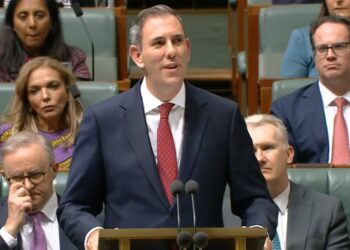Licensees providing personal advice to retail clients on relevant financial products will likely have to pay $1,500 plus $907 per adviser, ASIC said in its Cost Recovery Implementation Statement (CRIS) for its funding model for 2018-19.
For licensees providing personal advice to retail clients on products that are not relevant financial products, the levy is predicted to be $1,958.
Licensees only providing general advice will likely have a flat $828 levy, while licensees providing personal advice only to wholesale clients will be expected to pay a flat $566 levy.
This information will help industry better plan for the actual levy, which will not be billed until January 2020.
The indicative levies are a guide and the amounts are likely to change when ASIC’s regulatory costs are known and published in December 2019.
“This information will help industry better plan for the actual levy, which will not be billed until January 2020,” ASIC said.
“The indicative levies are a guide and the amounts are likely to change when ASIC’s regulatory costs are known and published in December 2019.”
Further, ASIC also outlined its main regulatory areas of focus on the financial advice sector, including:
- risk-based supervision and surveillance of the practices of financial advisers, based on its threat, harm and behaviour framework, to identify and address harms that threaten good investor and consumer outcomes;
- advice compliance at the five largest financial advice firms;
- testing industry compliance with the fee disclosure statement and renewal notice obligations, including reviewing samples of documentation provided to clients;
- monitoring firms’ remediation programs for fee-for-no-service breaches and continuing to investigate misconduct and take enforcement action;
- developing an approved product list reporting regime for firms that issue products and provide advice; and
- providing information and support to guide consumers’ decisions about setting up SMSFs and engaging where poor advice has been provided to consumers.




[i]Don’t you think we should have an industry body that will help prevent over regulation, represent planners only, increase consumer protection and thus intern reduce these types of levies? Something like a Financial Planners Body. Maybe the FPB….or something. Anyone interested in getting this type of body off the ground? I’m thinking it could help reduce regulation, payments like these. Any thoughts ?
[/i][i][/i]
OR, as a group we could work to create an environment where it isn’t needed?
Im joining a general advice licensee- less red tape there
I believe that’s what the associations were initially formed to do. But we all know how that turned out.
These will be much higher on an individual basis for the poor person that is left behind in 2025 to turn the lights off.
Don’t you think we should have an industry body that will help prevent over regulation, represent planners only, increase consumer protection and thus intern reduce these types of levies? Something like a Financial Planners Body. Maybe the FPB….or something. Anyone interested in getting this type of body off the ground? I’m thinking it could help reduce regulation, payments like these. Any thoughts ?
No point in giving ASIC money if they’re still not going to fine, suspend Bank owned AFSL. The rest of us respect, follow, implement and…… tremble and wet our pants at the mere name of ASIC, and we’re burried in paper work yet the Banks are laughing at them.
Use the money wisely ASIC, Your bogan chief of chest beating is planning to spend most of it in legal fees. No drama, you can rely on the free gifts from your friendly corporates (that you won’t disclose) to get you through.
Yep, keep the fees coming please, Happy to pay for a great job ASIC are doing. I have clients lining up, my business has boomed and I am rolling in the dough
Will not be billed until 2020? I along with many other received the notices earlier this year